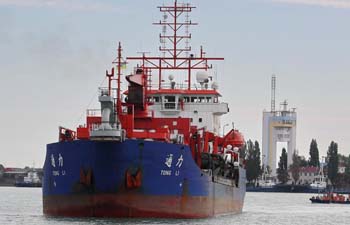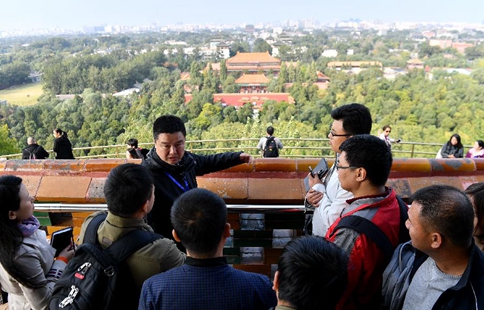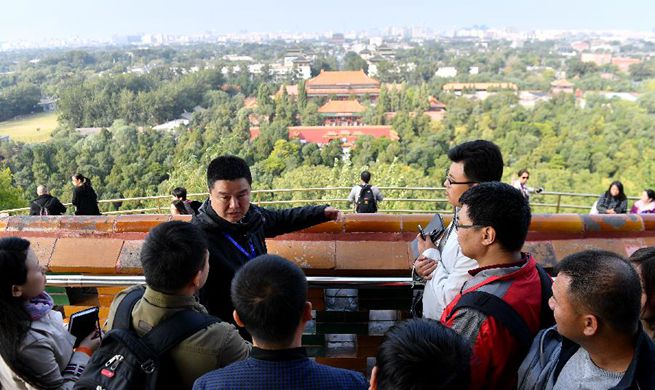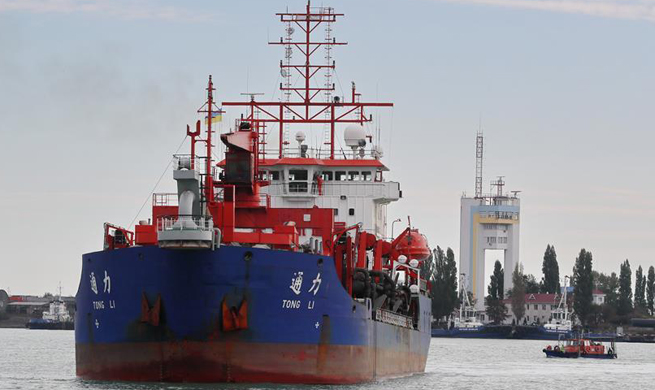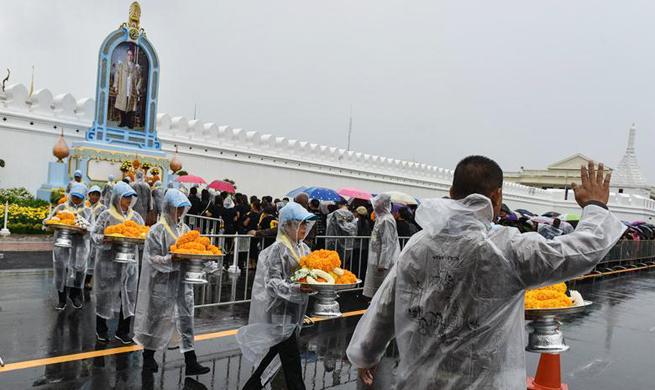ANKARA, Oct. 13 (Xinhua) -- Turkey and U.S. are attempting to resolve the row over visa services, but tensions in their ties are likely to continue for a while as the visa issue is just a tip of the iceberg, experts said.
The strained ties between the two NATO allies escalated last week after Turkey arrested a Turkish employee at the U.S. consulate in Istanbul. In a tit-for-tat move, both sides suspended visa services to each other's citizens.
While the two sides have agreed to hold talks soon to resolve the visa row, Turkish analysts said the visa issue is only a tip of the iceberg in the rapid deterioration of the Turkey-U.S. ties recently.
Ragip Soylu, a Daily Sabah's columnist, believed that there were other factors that provoked Washington to take the recent steps to pressure Turkey.
Soylu listed Turkish President Recep Tayyip Erdogan's latest visit to Iran, the arch rival to the U.S. in the Middle East, and the visit to Turkey by Venezuelan President Nicolas Maduro, another adversary to the U.S., among that factors that displeased the U.S. government.
"Turkey failed to foresee what was coming. It is now clear that Washington takes the security of its employees and citizens very seriously and will not step back until it gets what it wants," Soylu wrote Thursday on Daily Sabah.
The visa spat originated from the recent arrest of Metin Topuz, a Turkish employee of the U.S. Consulate in Istanbul, on charges of "espionage" and alleged link to the U.S.-based cleric Fethullah Gulen, blamed by Ankara for masterminding a failed military coup in July 2016.
The U.S. has repeatedly rejected Turkish government's request for extraditing Gulen to Turkey for his involvement in the 2016 coup aimed at overthrowing Erdogan's rule.
U.S. Ambassador to Turkey John Bass on Wednesday demanded Turkey provide clear evidence for linking Topuz's to illegal activities, while dismissing Turkey's spying allegations against Topuz as "baseless."
As another way of expressing its displeasure at the U.S., Turkey recently inked a deal with Russia to buy the S-400 missile defense systems despite being a NATO member.
Asli Aydintasbas, a Daily Cumhuriyet's columnist, told Xinhua that the current diplomatic spat between Turkey and the U.S. will not be short-lived.
She noted that some members of the U.S. Congress are mulling sanctions against Turkey over its plan to purchase Russian missile defense systems.
Aydintasbas said that, for the western public, Turkey is moving away from the Western alliance.
"Turkey's friendship with western countries is based on 60 years of NATO partnership, but these institutional bounds are rapidly dissolving," she said.
Turkey's presidential spokesman Ibrahim Kalin said Thursday that Turkey has received a request from the U.S. to resolve the ongoing visa spat.
Officials from the two sides will meet soon to discuss ways of settling the dispute.
It remains unknown how fast they could reach a settlement on the visa issue, but one thing is clear that the Turkey-U.S. diplomatic rift is not going to disappear sooner as long as the Gulen issue is not resolved.




